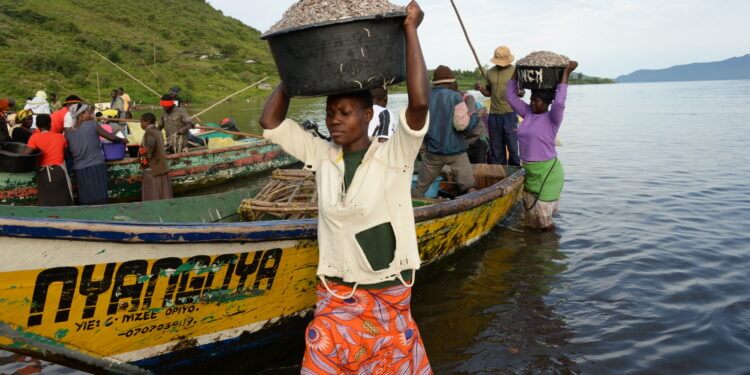
Our Projects are
Transforming African Trade
Quick Contacts
2nd Floor, Fidelity Insurance Centre Waiyaki Way, Westlands

The Secretariat of the African Continental Free Trade Area (AfCFTA) recently launched the implementation of a programme aimed at enabling more than 240,000 new jobs in the fisheries sector in certain African countries, during the period between 2024 and 2028.
Dubbed “Economic Empowerment of Women and Youth in Fisheries,” the program is a partnership between the AfCFTA Secretariat, the Mastercard Foundation and TradeMark Africa (TMA), a leading African trade facilitation organization. It will benefit micro, small and medium-sized enterprises (SMEs) operating in Kenya, Uganda, Tanzania, the Democratic Republic of Congo (DRC), Zambia and Nigeria, the Mastercard Foundation said.
The programme which is also expected to boost trade in fish and fishery products by about $100 million, in the countries of intervention, was designed to address the structural challenges faced by African women and youth when participating in the fisheries value chain, it was noted.
In Africa, the fisheries sector plays a major role in the food security and economic well-being of millions of households. To achieve its objectives, it will provide training, facilitate access to markets and finance, catalyse supply chain linkages, create digital solutions, simplify trade regimes, improve compliance with standards and enable streamlined access to cross-border markets, it added.
In Africa, the fisheries sector plays a major role in the food security and economic well-being of millions of households, it was recalled. It employs at least 12 million people, the Mastercard Foundation added, citing figures from the World Bank (WB). The majority of these people are women involved in processing, marketing and post-harvest processes. With its 38 coastal states, Africa has an exploitable fisheries potential estimated at $1 trillion per year, according to estimates.
Read original article
Disclaimer: The views and opinions expressed in this article are those of the authors and do not necessarily reflect the official policy or position of TradeMark Africa.